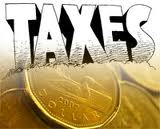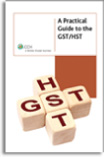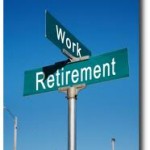Pension Income Splitting (Tax Accountant Brampton)
If you and your spouse or common-law partner have jointly elected to split your eligible pension income by completing Form T1032, Joint Election to Split Pension Income, you (the pensioner) can deduct on this line the elected split-pension amount from line E of Form T1032. No funds are actually transferred using pension splitting – it is simply a method for reducing the taxable income of one spouse by allocating income, on the tax return, to the other spouse, Tax Accountant Brampton
Form T1032 is to be filed by your filing due date for the year (see “What date is your return for 2010 due?”. This form must be attached to both your and your spouse’s or common-law partner’s paper returns. The information provided on the forms must be the same. If you are filing electronically, keep your election form in case CRA ask to see it by Tax Accountant Brampton.
Only one joint election can be made for a tax year. If both you and your spouse or common-law partner have eligible pension income, you will have to decide if you are splitting your pension income or your spouse’s or common-law partner’s pension income.
For more information:
http://www.cra-arc.gc.ca/menu-e.html
Half of Canadians are ready to cheat on taxes (Tax Accountant)
Tax planning is way of saving taxes instead of cheating on your Taxes Brampton. You can plan to save taxes through your Tax Accountant. OTTAWA – A new poll commissioned by the taxman suggests half of Canadians are ready to cheat with under-the-table cash payments. The survey conducted for the Canada Revenue Agency found only 49 per cent of people aren’t likely to cheat. The others were open to cutting corners, usually by paying cash for goods and services. However, almost all are reluctant to fudge on their actual tax returns, preferringunder-the-table deals to dodge taxes.
The survey didn’t say how much is lost to tax cheats, but in July, Statistics Canada estimated that the underground economy in Canada was worth as much as $36 billion in 2008, a 90-per-cent increase over 1992. At the time of the StatsCan release, the revenue agency said it used “a mix of outreach, education, and communications, as well as enforcement and audit actions to combat” the underground economy. “The CRA plans on continuing its efforts to combat the underground economy. It continues to be a high priority, and the CRA will use the study’s findings to further improve its tools and activities.”
The newly released poll by Phoenix Strategic Perspectives Inc. was conducted Jan. 29-Feb. 28 this year. The survey sample of 3,884 people gives it a margin of error of plus or minus 1.9 percentage points, 19 times out of 20. The report divided respondents into six categories, according to their attitudes. The 31 per cent called “law abiders” and 18 per cent dubbed “altruistic compliers” are low risks to fudge on taxes. The former are likely to be women, over 65, less educated and retired. The latter tend to be age 45-64, married, working full time, university-educated and with household incomes of $100,000 plus. The other four groups, of about 12-15 per cent each, were more open to cheating.
One group rationalizes cheating. They feel the tax system is unfair. Another group doesn’t think tax dodging is risky. A third think they already pay too much in taxes and look for a chance to pay cash and dodge the
tax collector. The last group, about 13 per cent of respondents, are called
“outlaws.” They’re willing to cheat, don’t think it’s a big deal and tend to believe that most people feel the same way. This group tends to be
male, under 30 and self-employed.
“The outlaws are the least likely to articulate traditional values and among the most likely to feel that control over their lives lies elsewhere,” the study said. The $140,000 report offered few prescriptions to remedy the situation. For example, it said focusing on penalties is most likely to be ineffective against those most likely to cheat.
For more information:
http://ca.finance.yahoo.com/news/Half-Canadians-ready-cheat-capress-4281332109.html
Let them eat cake: The wacky world of the Harmonized Sales Tax (Accountant GTA)
The HST is effective as of July 1, 2010 and here are some of items that taxable or exempt from HST, Accountant GTA. If you’re at a wedding some time after the harmonized sales tax kicks in on July 1, don’t complain if you get cake for dinner and dessert. You’re saving the bride and groom some money.
When the HST takes effect in Ontario this week, wedding cake will be exempt from the levy but not catered meals. And if the wine is a bit salty, grin and drink up, because cooking wine is HST-free. The exemption for cakes and cooking wine are just two of the quirks that come with the controversial tax that will take the place of the provincial sales tax and the federal Goods and Services Tax Ontario this week.
The Canada Revenue Agency, which will administer the new tax system, devotes 35 pages to food and the HST, and there are deals to be had. It all comes down to what’s considered a snack or a grocery. Does the ice go in your drink or in the cooler? Are you about to scarf down a crisp, a fry or a spud? For example, if your pizza is still frozen, it will escape the bite of the HST, but if you drink soy milk instead of the bovine beverage, then your wallet will feel the pinch. Because a food or beverage hasn’t been defined under the federal Excise Tax Act, the federal revenue agency has made its own definition on products it considers to be basic grocery items and which are value-added, meaning a 13 per cent HST in Ontario.
“If a product’s tax status is in doubt, the CRA will consider the
manner in which the product is displayed, labelled, packaged, invoiced and advertised to determine its tax status,” said a January 2007 HST memorandum, written before the two provinces decided to adopt the tax.
“The CRA’s approach is based on the views of an average consumer,”
said the memor andum. When the federal Goods and Services Tax was introduced in 1991, it had its own oddities. For example, people paid GST on a single donut, but didn’t pay on a dozen.
That rule will hold true for the HST: buy a muffin or pastry on its own and
you pay tax, but buy a pack of six and it won’t be taxable. With the HST, basic groceries such as meat, potatoes, fruits and vegetables escape the HST, but once items are put in packages and processed somewhat, the
tax applies.
Anything considered a snack food such as carbonated drinks, candies, and chips are taxable, but Ontario residents will get a bit of a break on munchies that cost less than $4. Prepared food and drink sold for less than $4 will not be charged the eight-per cent Ontario portion of the HST.
Heated foods, salads and sandwiches and cheese and finger-food platters under $4 will also escape the tax in Ontario.
So will print newspapers that contain news, editorial and features of
interest to the general public, while flyers, inserts, magazines, periodicals
and shoppers are hit with the full tax. Fruit drinks, if they contain less than 25 per cent of natural fruit juice are taxable, and the tax man has taken a close look at that frozen concentrate.
For more information:
http://thetyee.ca/Blogs/TheHook/BC-Politics/2010/06/28/wacky-world-of-HST/
T4 Late filing Penalty by Payroll Accountant Woodbridge
It is very important that file T4 slips on time to avoid heavy penalty from CRA by Accountant Woodbridge. Please see your Payroll Accountant Woodbridge ON as soon as possible for more information. You have to file an information return and give information slips to your employees by the last day of February following the calendar year to which the information return applies. Also you have remit payroll deductions by 15th of January to avoid penalty of 10% by CRA, Payroll Accountant Woodbridge ON. If the last day of February is a Saturday or Sunday, your information return is due the next business day by Payroll Accountant Woodbridge.
You may need to file early due to bankruptcy or if your business stops operating. In these situations you are required to file within 30 days following the last day that your business ceased all activities in woodbridge on.
Effective January 1, 2010, the penalty for failing to file an information return by the due date or for distributing slips to recipients late is the greater of $100 or a penalty determined as follows:
For more information:
http://www.cra-arc.gc.ca/tx/bsnss/tpcs/pyrll/hwpyrllwrks/pnlty/pnlts/rprtng-eng.html
Things That Are Ruining Your Retirement (Income Taxes Brampton)
Planning for your future retirement can be difficult. Many of us are looking forward to traveling the world or taking it easy at home in retirement, Income Taxes Brampton. But a successful retirement requires early planning. You can’t just expect everything to turn out all right if you aren’t taking active measures to improve your financial situation. You also need to avoid these five pitfalls that could ruin your retirement:
1. Borrowing from your retirement account. If you take money
out of your retirement account, there will obviously be less for you to use
later. You will have to pay income tax and, if younger than age 59½, an early withdrawal penalty. Many retirement account loans also come with fees.
You also pay in lost opportunity. Even if you repay the money, you can’t replace the money you would have made if you hadn’t taken it out. When your money isn’t in your retirement account, it can’t work for you.
2. Building up credit card debt. Few things are as devastating to your finances as credit card debt. Building up credit card debt can result in having more expenses down the road. You are paying interest into
someone else’s pocket, rather than using the money to build your own wealth. Consider how you are spending your money, and how building up credit card debt might be costing you in the future.
3. Using the equity in your home. For many people, a home is their biggest asset. Building up equity in your home can provide for your
future. You can sell your home for a large amount of capital just before
retirement, or you can tap into that equity during retirement to use as a
source of income. Even if you don’t use the equity in your home to cover costs related to retirement, just having your home paid off can provide peace of mind. It’s one less expense to worry about, and you will have a place to live. Instead of using the equity in your home now, consider building it up so you have more options later.
4. Neglecting your health. It’s hard to enjoy retirement when you are in poor health. You can increase your chances of being healthy enough to enjoy retirement by making better health choices now. While you don’t have to completely shun treats, an overall healthy diet, reasonable
exercise, and fulfilling relationships can contribute to your general health.
If you are healthy, your costs will be lower and you will be able to enjoy life more. Make sure to take good care of yourself by staying fit and healthy
For more information:
http://ca.finance.yahoo.com/news/5-Things-That-Are-Ruining-usnews-3261820097.html?&mod=pf-sp14b
Next Page » « Previous Page







